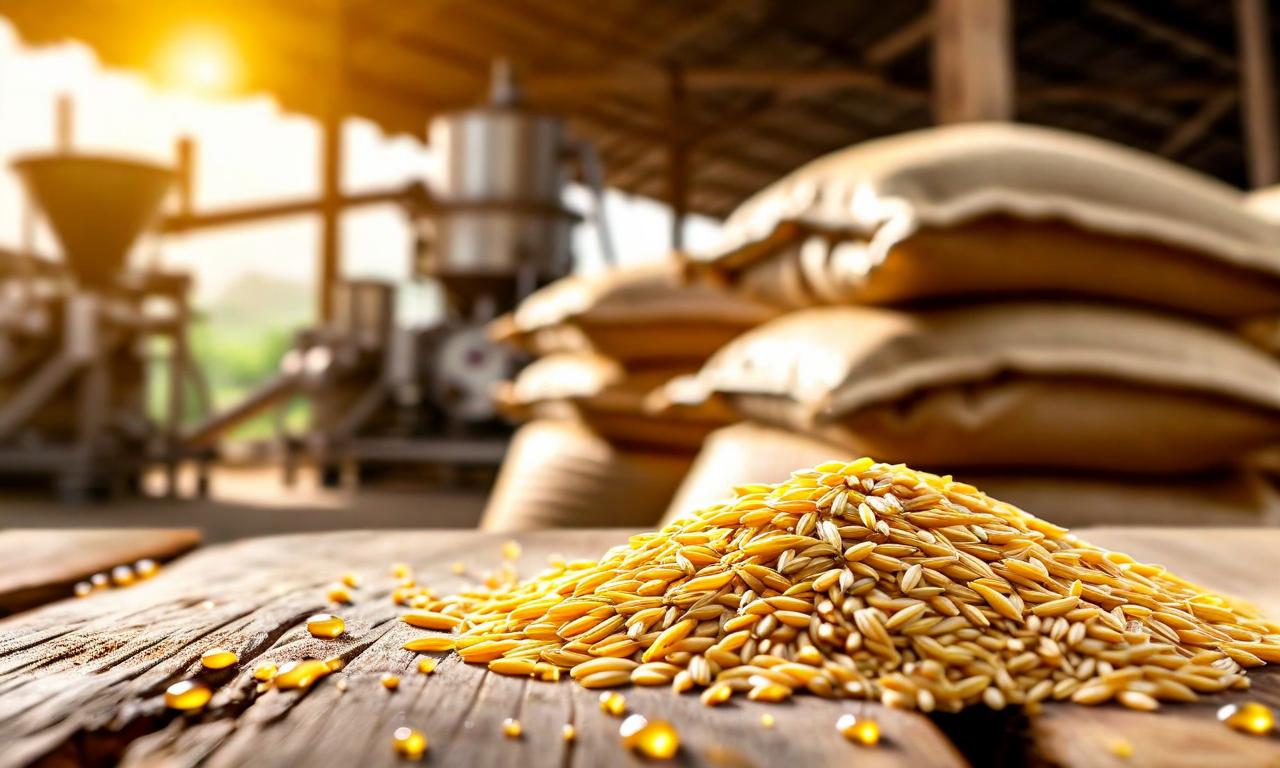Government Lifts Export Ban on De-Oiled Rice Bran, Boosting Industry Prospects
The Indian government has removed the export ban on de-oiled rice bran, opening new opportunities for the rice bran processing industry. This decision is expected to increase foreign exchange earnings, boost demand for Indian de-oiled rice bran globally, and potentially improve price realization for producers. Companies like BCL Industries in the edible oil and distillery sector may benefit from this policy change. The move aligns with government efforts to promote value-added agricultural exports and could lead to improved income for farmers and rice mill operators.

*this image is generated using AI for illustrative purposes only.
In a significant move for the agricultural sector, the Indian government has announced the removal of the export ban on de-oiled rice bran. This decision is expected to have far-reaching implications for the rice bran processing industry and related businesses.
Impact on the De-Oiled Rice Bran Industry
The lifting of the export ban opens up new opportunities for Indian producers of de-oiled rice bran. This by-product of rice milling, which is rich in nutrients and has various industrial applications, can now be freely exported to international markets. The move is likely to boost foreign exchange earnings and provide a fillip to the domestic rice bran processing industry.
Potential Benefits for Companies
Several companies in the rice bran oil and processing sector stand to benefit from this policy change. One such company mentioned in connection with this development is BCL Industries. As a player in the edible oil and distillery sector, BCL Industries may find new avenues for growth with the ability to export de-oiled rice bran.
Market Implications
The decision to allow exports of de-oiled rice bran is expected to:
- Increase demand for Indian de-oiled rice bran in the global market
- Potentially lead to better price realization for producers
- Encourage investments in rice bran processing facilities
- Boost the overall value chain of rice processing in India
Broader Economic Impact
This policy shift aligns with the government's efforts to promote value-added exports from the agricultural sector. It may contribute to:
- Improved income for farmers and rice mill operators
- Enhanced utilization of rice by-products
- Increased competitiveness of Indian de-oiled rice bran in the international market
As the industry adapts to this new export opportunity, stakeholders will be closely watching how companies like BCL Industries and others in the sector respond to the changed regulatory landscape. The full extent of this decision's impact on the de-oiled rice bran export industry and related sectors will likely unfold in the coming months.
























